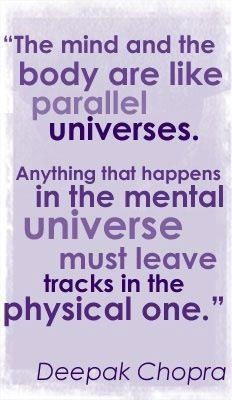
Quick hits:
- Our physical health and psychological health are linked
- They respond similarly to our efforts to improve them
- Consistency and accountability are required for progress
- Professional advice saves you lots of trouble
Disclaimer: these comparisons are consistent for many folks based upon my personal and professional experience. There are outliers for whom these ideas do not ring true. You should consult a licensed professional before beginning any training plan – physical, psychological, or otherwise.
One of the consistent metaphors I use in sessions is relating our psychological goals to our physical goals. Many people starting psychological training (therapy/counseling) are not sure what to expect, but they have experienced some form of physical training. Whether it was a community softball league, professional sports, or just working out at the gym, most folks can relate to setting and pursuing physical goals.
There are many similarities between making physical progress and making psychological progress. This post is intended to highlight these similarities in order to find a new ways to connect you to your psychological goals so you may feel more comfortable starting, continuing, and getting the most out of your training time.
Consistency is key:
You probably know the cliché, “you get out what you put in”. Like most clichés, this one is rooted in truth for many situations. If you spend one hour/week or four hours/month in the gym you may feel a little better, but you’re not likely to make much physical progress. The same is true for your psychological health.
This means that if you spend one hour/week in session with your psychotherapist and do not put any more effort into your psychological growth, then you are not likely to see much progress. You may have specific assignments between sessions. Or you may just take what you learn in session and reflect on it or practice it throughout your week. Whatever you do, it must be consistent in order for anything to change. You don’t lose weight staring at the treadmill, and you don’t improve your psychological health by staring at your therapist.
Along these lines, our skills and muscles atrophy if we don’t use them. If you have a great experience at the gym working regularly with your trainer for a few months you may feel great and make great progress! But, if you stop going, you will lose that progress. The same works for much of our psychological work. If you work diligently to develop skills around cultivating healthy relationships and taking good care of your psychological wellness you will feel great! But if you stop practicing these skills you will fall into your old patterns that may not serve you as well. This doesn’t mean you need to be in therapy forever, just as you don’t need a physical trainer forever. However, you will need to practice your healthy habits in either part of your life in order to maintain the benefits.
Problem Areas Suck:
Whether it’s stubborn love handles or a stubborn love of booze, if we don’t address our problem areas they will not improve. Getting physically fit is not a mystical process. We need to burn more calories than we take in to lose weight. We need to bend our muscles to stretch and strengthen them. Getting psychologically fit is not magical either. We need to change our ways of thinking in order to change our behaviors. We need to change the ways we relate to others in order to change our relationships. If you don’t lift weights you are not likely to get any stronger. If you don’t talk about your issues, they are not likely to improve.
Along these lines, while the work may be hard, it doesn’t have to make you miserable. If you’re working with a physical trainer and you hate running, a good physical trainer will help you find ways to meet your goals that don’t involve running. Similarly, a good psychotherapist will help facilitate your psychological progress with tools and strategies that don’t make you miserable.
Accountability:
The greatest physical trainer in the world can’t burn the calories for you. A good trainer can help you feel motivated and make the work more fun, but ultimately, you’re the one going to the gym and sweating.
Similarly, the best psychotherapist in the world can’t talk you into a healthier life. You will have to do the work – which will likely include showing up regularly, making an effort in between sessions, and being honest with yourself and your therapist.
The good news here is that the process doesn’t have to last forever. If you are new to working out for physical fitness a trainer can help you learn the basics and accomplish your first set of goals a matter of weeks or months. Once you have a solid grasp on the fundamentals you may not need to continue working with them until you have new goals in mind.
This concept applies directly to your psychological goals and training as well. Most folks are able to learn some fundamental skills and realize satisfying results in around ten weeks. After that, they may choose to stay in therapy and work on new goals, or they may not. Either way, while our health is a lifelong process, working with a professional doesn’t need to be.

One benefits the other:
With all of these similarities between working on our physical and psychological health, it’s no wonder that these two parts of our lives impact each other. Simply put: working on your physical fitness will have a great impact on your psychological health, and working on your psychological health will have a great impact on your physical health.
When you are more psychologically well you will be in touch with your true motivations that help you eat healthier and get you to the gym. Being psychologically well makes you a better athlete. When you are physically well you feel better psychologically, are more aware of your thoughts and feelings, and are more willing to honestly explore them. This synergy is a beautiful thing!
Work with a professional that works for you:
You will benefit from working with a licensed professional. When it comes down to it, we can only get so far working on our own. However, working with a physical trainer is a personal thing. You need to feel comfortable looking vulnerable and sharing your strengths and weaknesses with them. This is hard! As human beings we click better with some folks than others.
The same thing is true for your psychological training. It is vulnerable, challenging work, and you must feel comfortable with your therapist in order to make progress. You are putting in effort and deserve to see results! Do not settle for a trainer or therapist that is not a good fit for you.
The “Musts” of Psychological and Physical Progress:
- Consistency – you get out what you put in
- Accountability – if you don’t work on it, it will not change
- Professional Input – you can teach yourself a new skill, but a professional will save you lots of time and frustration
In summary, if you have goals around feeling better and improving your overall wellness, I encourage you to pay attention to both your mind and your body. They may be more similar than you realize and working on one will certainly help the other. Use these three tips and you will be thrilled by how quickly and effectively your situation improves.
All the best as you make your progress,
Matt
